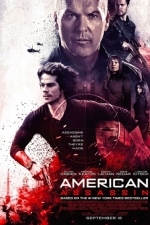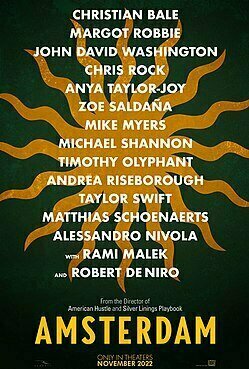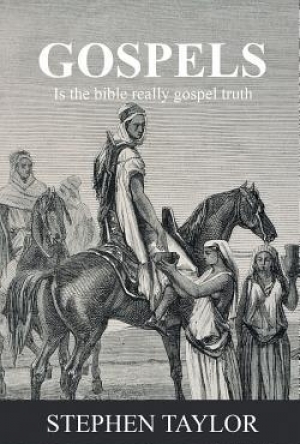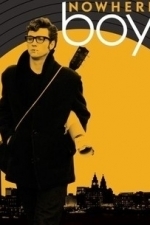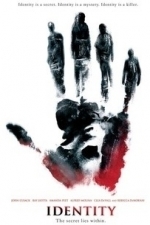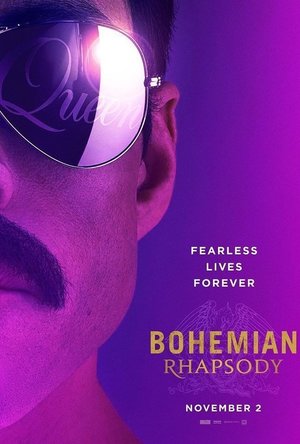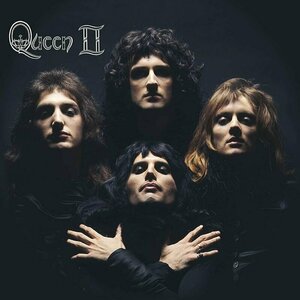Search
Search results
Kevin Phillipson (10072 KP) rated American Assassin (2017) in Movies
Mar 17, 2019
Kevin Phillipson (10072 KP) rated Amsterdam (2022) in Movies
Oct 21, 2022
Christian bale (2 more)
John David Washington
Margot robbie
Watched yesterday my second murder mystery movie of the month after see how they run not as good as that one but there was plenty to laugh at start to finish especially the running gag over Christian bales glass Eye plenty of good performances all around from the cast even an appearance from taylor swift only in at the beginning of the movie sets the plot up. Would I recommend the film yes
Adventure and Redemption
I received this book for free through Goodreads First Reads.
Is the Bible really gospel truth? This is the question the honourable, academic Robert Babcock aims to find out on his quest to find the earliest copies of the gospels in order to prove the reliability of the story of Jesus as recounted in the King James Bible. However, this is not the key focus of Stephen Taylor’s fictional novel, Gospels. The main character is the perfidious John Campbell-John, a rogue, imposter and swindler who flees 19th-century England in an attempt to escape from his debts.
John meets the magnanimous Robert in Venice and, despite being polar opposites, become firm friends. After being honest for the first time in his life, admitting to owing thousands of pounds in gambling debts, Robert offers John the opportunity to accompany him on his quest through the deserts of Egypt. John accepts and the pair finds themselves on an adventure of discovery and personal redemption.
John and Robert make an unlikely but excellent team. Robert’s knowledge of the Bible and ancient history is vital, however, John’s propensity for falsehoods and cunningness gets them out of a few scrapes and tricky situations. Nonetheless, it is difficult for John to give up his old ways and his insular behaviour threatens to get them in more trouble.
Fortunately, Robert’s humility begins to influence the young scoundrel, as does his penchant for historical artefacts. As the story progresses, John begins to leave his past behind and becomes interested in Robert’s work, learning new things about Egyptian culture and the origins of the Bible. However, when a new gospel comes to light that threatens the whole of Christianity, Robert does not know what to do; and only John can give him counsel.
John Campbell-John is a character that the author introduced in a previous book. However, the timelines are not sequential, therefore Gospels is a stand-alone novel. The time frame for this book needed to be set in 1835 to correspond with historical truths. Although Robert’s discovery of a Gospel of Thaddeus Jude is an invention of the author, the quest itself is based on the journeys of three 19th-century Bible hunters. Stephen Taylor has conducted an enormous amount of research, including the biographies of Robert Curzon, Constantin von Tischendorf and Émile Amélineau who, on separate occasions, sought the same knowledge as the fictional Robert Babcock.
Despite being titled Gospels, the novel, for the most part, focuses on John Campbell-John and his wicked ways. Through a first-person narrative, John explains his past, his betrayal of a friend, and his addiction to gambling. Initially, he has no qualms about his behaviour and acts only for himself and his selfish greed. Whilst Robert goes in search of knowledge, John goes on a journey of redemption, coming to terms with his previous wrongdoings. However, acknowledging these faults is not enough, he needs to turn away from these roguish ways.
It is disappointing that the narrative does not focus more on the gospels, both real and imagined. There was enormous scope for an in-depth look at the life of Jesus and the inconsistencies in the Bible. The fictitious Gospel of Thaddeus Jude evokes a similar reaction in Robert as the Non-Canonical Gospel of Thomas found in the 19th-century had on many devout Christians. There was so much potential with this direction of thought, however, the author passes over it in preference to the life of John Campbell-John.
Slow to begin but increasingly interesting as it progresses, Gospels is a book of many themes. History, both 19th-century and ancient; religion, although not a Christian story; and achievement and absolution combine together to produce a unique tale that takes the reader from the back alleys of London to the River Nile and the deserts of Sinai. A subtle clue in the prologue keeps readers alert as they await the conclusion of the adventure – an ending that ambiguously reveals whether John moves on from the follies of his past.
Is the Bible really gospel truth? This is the question the honourable, academic Robert Babcock aims to find out on his quest to find the earliest copies of the gospels in order to prove the reliability of the story of Jesus as recounted in the King James Bible. However, this is not the key focus of Stephen Taylor’s fictional novel, Gospels. The main character is the perfidious John Campbell-John, a rogue, imposter and swindler who flees 19th-century England in an attempt to escape from his debts.
John meets the magnanimous Robert in Venice and, despite being polar opposites, become firm friends. After being honest for the first time in his life, admitting to owing thousands of pounds in gambling debts, Robert offers John the opportunity to accompany him on his quest through the deserts of Egypt. John accepts and the pair finds themselves on an adventure of discovery and personal redemption.
John and Robert make an unlikely but excellent team. Robert’s knowledge of the Bible and ancient history is vital, however, John’s propensity for falsehoods and cunningness gets them out of a few scrapes and tricky situations. Nonetheless, it is difficult for John to give up his old ways and his insular behaviour threatens to get them in more trouble.
Fortunately, Robert’s humility begins to influence the young scoundrel, as does his penchant for historical artefacts. As the story progresses, John begins to leave his past behind and becomes interested in Robert’s work, learning new things about Egyptian culture and the origins of the Bible. However, when a new gospel comes to light that threatens the whole of Christianity, Robert does not know what to do; and only John can give him counsel.
John Campbell-John is a character that the author introduced in a previous book. However, the timelines are not sequential, therefore Gospels is a stand-alone novel. The time frame for this book needed to be set in 1835 to correspond with historical truths. Although Robert’s discovery of a Gospel of Thaddeus Jude is an invention of the author, the quest itself is based on the journeys of three 19th-century Bible hunters. Stephen Taylor has conducted an enormous amount of research, including the biographies of Robert Curzon, Constantin von Tischendorf and Émile Amélineau who, on separate occasions, sought the same knowledge as the fictional Robert Babcock.
Despite being titled Gospels, the novel, for the most part, focuses on John Campbell-John and his wicked ways. Through a first-person narrative, John explains his past, his betrayal of a friend, and his addiction to gambling. Initially, he has no qualms about his behaviour and acts only for himself and his selfish greed. Whilst Robert goes in search of knowledge, John goes on a journey of redemption, coming to terms with his previous wrongdoings. However, acknowledging these faults is not enough, he needs to turn away from these roguish ways.
It is disappointing that the narrative does not focus more on the gospels, both real and imagined. There was enormous scope for an in-depth look at the life of Jesus and the inconsistencies in the Bible. The fictitious Gospel of Thaddeus Jude evokes a similar reaction in Robert as the Non-Canonical Gospel of Thomas found in the 19th-century had on many devout Christians. There was so much potential with this direction of thought, however, the author passes over it in preference to the life of John Campbell-John.
Slow to begin but increasingly interesting as it progresses, Gospels is a book of many themes. History, both 19th-century and ancient; religion, although not a Christian story; and achievement and absolution combine together to produce a unique tale that takes the reader from the back alleys of London to the River Nile and the deserts of Sinai. A subtle clue in the prologue keeps readers alert as they await the conclusion of the adventure – an ending that ambiguously reveals whether John moves on from the follies of his past.
<i>I received this book for free through Goodreads First Reads.
Is the Bible really gospel truth?</i> This is the question the honourable, academic Robert Babcock aims to find out on his quest to find the earliest copies of the gospels in order to prove the reliability of the story of Jesus as recounted in the King James Bible. However, this is not the key focus of Stephen Taylor’s fictional novel, <i>Gospels</i>. The main character is the perfidious John Campbell-John, a rogue, imposter and swindler who flees 19th-century England in an attempt to escape from his debts.
John meets the magnanimous Robert in Venice and, despite being polar opposites, become firm friends. After being honest for the first time in his life, admitting to owing thousands of pounds in gambling debts, Robert offers John the opportunity to accompany him on his quest through the deserts of Egypt. John accepts and the pair finds themselves on an adventure of discovery and personal redemption.
John and Robert make an unlikely but excellent team. Robert’s knowledge of the Bible and ancient history is vital, however, John’s propensity for falsehoods and cunningness gets them out of a few scrapes and tricky situations. Nonetheless, it is difficult for John to give up his old ways and his insular behaviour threatens to get them in more trouble.
Fortunately, Robert’s humility begins to influence the young scoundrel, as does his penchant for historical artefacts. As the story progresses, John begins to leave his past behind and becomes interested in Robert’s work, learning new things about Egyptian culture and the origins of the Bible. However, when a new gospel comes to light that threatens the whole of Christianity, Robert does not know what to do; and only John can give him counsel.
John Campbell-John is a character that the author introduced in a previous book. However, the timelines are not sequential, therefore <i>Gospels</i> is a stand-alone novel. The time frame for this book needed to be set in 1835 to correspond with historical truths. Although Robert’s discovery of a Gospel of Thaddeus Jude is an invention of the author, the quest itself is based on the journeys of three 19th-century Bible hunters. Stephen Taylor has conducted an enormous amount of research, including the biographies of Robert Curzon, Constantin von Tischendorf and Émile Amélineau who, on separate occasions, sought the same knowledge as the fictional Robert Babcock.
Despite being titled <i>Gospels</i>, the novel, for the most part, focuses on John Campbell-John and his wicked ways. Through a first-person narrative, John explains his past, his betrayal of a friend, and his addiction to gambling. Initially, he has no qualms about his behaviour and acts only for himself and his selfish greed. Whilst Robert goes in search of knowledge, John goes on a journey of redemption, coming to terms with his previous wrongdoings. However, acknowledging these faults is not enough, he needs to turn away from these roguish ways.
It is disappointing that the narrative does not focus more on the gospels, both real and imagined. There was enormous scope for an in-depth look at the life of Jesus and the inconsistencies in the Bible. The fictitious Gospel of Thaddeus Jude evokes a similar reaction in Robert as the Non-Canonical Gospel of Thomas found in the 19th-century had on many devout Christians. There was so much potential with this direction of thought, however, the author passes over it in preference to the life of John Campbell-John.
Slow to begin but increasingly interesting as it progresses, <i>Gospels</i> is a book of many themes. History, both 19th-century and ancient; religion, although not a Christian story; and achievement and absolution combine together to produce a unique tale that takes the reader from the back alleys of London to the River Nile and the deserts of Sinai. A subtle clue in the prologue keeps readers alert as they await the conclusion of the adventure – an ending that ambiguously reveals whether John moves on from the follies of his past.
Is the Bible really gospel truth?</i> This is the question the honourable, academic Robert Babcock aims to find out on his quest to find the earliest copies of the gospels in order to prove the reliability of the story of Jesus as recounted in the King James Bible. However, this is not the key focus of Stephen Taylor’s fictional novel, <i>Gospels</i>. The main character is the perfidious John Campbell-John, a rogue, imposter and swindler who flees 19th-century England in an attempt to escape from his debts.
John meets the magnanimous Robert in Venice and, despite being polar opposites, become firm friends. After being honest for the first time in his life, admitting to owing thousands of pounds in gambling debts, Robert offers John the opportunity to accompany him on his quest through the deserts of Egypt. John accepts and the pair finds themselves on an adventure of discovery and personal redemption.
John and Robert make an unlikely but excellent team. Robert’s knowledge of the Bible and ancient history is vital, however, John’s propensity for falsehoods and cunningness gets them out of a few scrapes and tricky situations. Nonetheless, it is difficult for John to give up his old ways and his insular behaviour threatens to get them in more trouble.
Fortunately, Robert’s humility begins to influence the young scoundrel, as does his penchant for historical artefacts. As the story progresses, John begins to leave his past behind and becomes interested in Robert’s work, learning new things about Egyptian culture and the origins of the Bible. However, when a new gospel comes to light that threatens the whole of Christianity, Robert does not know what to do; and only John can give him counsel.
John Campbell-John is a character that the author introduced in a previous book. However, the timelines are not sequential, therefore <i>Gospels</i> is a stand-alone novel. The time frame for this book needed to be set in 1835 to correspond with historical truths. Although Robert’s discovery of a Gospel of Thaddeus Jude is an invention of the author, the quest itself is based on the journeys of three 19th-century Bible hunters. Stephen Taylor has conducted an enormous amount of research, including the biographies of Robert Curzon, Constantin von Tischendorf and Émile Amélineau who, on separate occasions, sought the same knowledge as the fictional Robert Babcock.
Despite being titled <i>Gospels</i>, the novel, for the most part, focuses on John Campbell-John and his wicked ways. Through a first-person narrative, John explains his past, his betrayal of a friend, and his addiction to gambling. Initially, he has no qualms about his behaviour and acts only for himself and his selfish greed. Whilst Robert goes in search of knowledge, John goes on a journey of redemption, coming to terms with his previous wrongdoings. However, acknowledging these faults is not enough, he needs to turn away from these roguish ways.
It is disappointing that the narrative does not focus more on the gospels, both real and imagined. There was enormous scope for an in-depth look at the life of Jesus and the inconsistencies in the Bible. The fictitious Gospel of Thaddeus Jude evokes a similar reaction in Robert as the Non-Canonical Gospel of Thomas found in the 19th-century had on many devout Christians. There was so much potential with this direction of thought, however, the author passes over it in preference to the life of John Campbell-John.
Slow to begin but increasingly interesting as it progresses, <i>Gospels</i> is a book of many themes. History, both 19th-century and ancient; religion, although not a Christian story; and achievement and absolution combine together to produce a unique tale that takes the reader from the back alleys of London to the River Nile and the deserts of Sinai. A subtle clue in the prologue keeps readers alert as they await the conclusion of the adventure – an ending that ambiguously reveals whether John moves on from the follies of his past.
Sarah (7800 KP) rated Nowhere Boy (2010) in Movies
Sep 11, 2020
Well acted
This is a film that has been fairly underrated and almost forgotten which I think is a shame, as it's actually a good film driven by some stellar performances.
Aaron Taylor-Johnson excels in this as John and he's what makes this film so good to watch. I always forget that he's actually English until I see him in a film with an English accent, but even still his scouse accent in this is pretty impressive. And the rest of the cast too from Anne-Marie Duff to Kristin Scott-Thomas (there's a load of double barrelled names in this!) all perform admirably in this. The story in this is probably what lets it down. Yes it's interesting to see what happened in John Lennon's early life and how The Beatles first came to be, but there are some aspects with his mum and aunt that get a little too soap opera-esque at times. Personally I wouldve preferred a little more concentration on the music side. And i know the era this film is set in, but I got sick of every scene featuring cigarettes and someone smoking. It was just so noticeable all the time that it became irritating.
Overall this is a pretty decent film about John Lennon's early life made better by some brilliant performances.
Aaron Taylor-Johnson excels in this as John and he's what makes this film so good to watch. I always forget that he's actually English until I see him in a film with an English accent, but even still his scouse accent in this is pretty impressive. And the rest of the cast too from Anne-Marie Duff to Kristin Scott-Thomas (there's a load of double barrelled names in this!) all perform admirably in this. The story in this is probably what lets it down. Yes it's interesting to see what happened in John Lennon's early life and how The Beatles first came to be, but there are some aspects with his mum and aunt that get a little too soap opera-esque at times. Personally I wouldve preferred a little more concentration on the music side. And i know the era this film is set in, but I got sick of every scene featuring cigarettes and someone smoking. It was just so noticeable all the time that it became irritating.
Overall this is a pretty decent film about John Lennon's early life made better by some brilliant performances.
Matthew Krueger (10051 KP) rated Identity (2003) in Movies
Sep 30, 2020
Who Can You Trust
Idenity- is a very underrated horror film. It has a good cast, a good plot and a good twist at the end. Its psycholoigcal, suspenseful, thrilling, scary and twisted.
The Plot: When a vicious storm breaks out in the Nevada desert, 10 people seek refuge in an isolated motel. At the same time, a serial killer (Pruitt Taylor Vince) under the care of psychiatrist Doctor Mallick (Alfred Molina) -- who has just found the killer's revealing journal -- awaits execution for murdering a group of motel guests. When the storm-stranded travelers realize they are being killed off one by one, limo driver Ed Dakota (John Cusack) bids to stay alive and reveal the murderer's identity.
Its a really good film.
The Plot: When a vicious storm breaks out in the Nevada desert, 10 people seek refuge in an isolated motel. At the same time, a serial killer (Pruitt Taylor Vince) under the care of psychiatrist Doctor Mallick (Alfred Molina) -- who has just found the killer's revealing journal -- awaits execution for murdering a group of motel guests. When the storm-stranded travelers realize they are being killed off one by one, limo driver Ed Dakota (John Cusack) bids to stay alive and reveal the murderer's identity.
Its a really good film.
Matthew Krueger (10051 KP) rated The Haunting (1963) in Movies
Oct 4, 2019
The Haunted House
The Haunting- is one of the best horror movies of all time. Its scary, spooky, haunting, terrorfying, horrorfying and more.
The Plot: Dr. John Markway, an anthropologist with an interest in psychic phenomena, takes two specially selected women to Hill House, a reportedly haunted mansion. Eleanor (Julie Harris), a lonely, eccentric woman with a supernatural event in her past, and the bold Theodora (Claire Bloom), who has ESP, join John and the mansion's heir, cynical Luke (Russ Tamblyn). They are immediately overwhelmed by strange sounds and events, and Eleanor comes to believe the house is alive and speaking directly to her.
From the great novel- The Haunting of Hill House by Shirley Jackson.
In 2010, The Guardian newspaper ranked it as the 13th-best horror film of all time. Director Martin Scorsese has placed The Haunting first on his list of the 11 scariest horror films of all time.
The film was remade in 1999 by director Jan de Bont, starring Liam Neeson, Lili Taylor, Catherine Zeta-Jones and Owen Wilson, but that version was heavily panned by critics and audiences. Dont watch that film, but instead watch this masterpiece.
I would highly reccordmend this movie.
The Plot: Dr. John Markway, an anthropologist with an interest in psychic phenomena, takes two specially selected women to Hill House, a reportedly haunted mansion. Eleanor (Julie Harris), a lonely, eccentric woman with a supernatural event in her past, and the bold Theodora (Claire Bloom), who has ESP, join John and the mansion's heir, cynical Luke (Russ Tamblyn). They are immediately overwhelmed by strange sounds and events, and Eleanor comes to believe the house is alive and speaking directly to her.
From the great novel- The Haunting of Hill House by Shirley Jackson.
In 2010, The Guardian newspaper ranked it as the 13th-best horror film of all time. Director Martin Scorsese has placed The Haunting first on his list of the 11 scariest horror films of all time.
The film was remade in 1999 by director Jan de Bont, starring Liam Neeson, Lili Taylor, Catherine Zeta-Jones and Owen Wilson, but that version was heavily panned by critics and audiences. Dont watch that film, but instead watch this masterpiece.
I would highly reccordmend this movie.
Gareth von Kallenbach (980 KP) rated Bohemian Rhapsody (2018) in Movies
Jul 2, 2019
How many of these reviews are going to start with “Is this the real life? Is this just fantasy?” A lot I am willing to bet. The thing is, it’s a good way to start. Bohemian Rhapsody has been a highly anticipated film for many years. I remember back when they were considering Johnny Depp for Freddie Mercury. Then it was Sasha Baren Cohen. And then they announced Rami Malek, and a majority of the country went, “Who?” Rami Malek is mostly known for his work as the lead in the USA Network series Mr. Robot. He got his start in the Night at the Museum series, and has scene big screen time in Need for Speed and, most recently, Papillion alongside Charlie Hunnam. I think it’s safe to say that after November 2, 2018, people will definitely know who he is.
Named for Queen’s most successful song in their portfolio, Bohemian Rhapsody tells the story of Freddie Mercury and how he rose from being a baggage boy at Heathrow, to a literal rock legend. We see how the band Queen was formed, how they got their name, how they made it big, and what made Queen… well Queen. Rami Malek delivers a powerful performance as the front man of the legendary band. For me, it started off a little shaky at first (coming from someone who is fan of Malek), but he quickly made the role his own and personified the late Mercury like no other can. Even Mercury’s own sister saw Malek in full costume and said, “There’s my Freddie.”
Not to downplay the rest of the cast. Rounding at the rest of the band is Joseph Mazzello as John Deacon, Ben Hardy as Roger Taylor, and Gwilym Lee as Brian May. All delivered powerful performances in their own right, and the chemistry between the 4 actors is undeniable. Veterans Aidan Gillen (as John Reid) and Tom Hollander (Jim Beach) deliver in their supporting roles, as does Lucy Boynton, who played Mary Austin. If some of these names do not seem familiar, get ready to learn a lot of the background of Queen in their rise, fall, and then rise again. Also, Mike Myers makes an appearance for a fun cameo as Ray Foster.
Clearly a majority of the film’s score revolves around the band’s expansive portfolio. But it wasn’t just the in your face, obvious music that was there. They did a great job with subtle melodies or bars from the band’s repertoire hanging in the background of impactful scenes throughout the film. Sometimes you’ll miss it, sometimes it’s obvious, and sometimes it might just make you cry.
The story begins with Mercury meeting Taylor and May, and ends with the ever-famous Live-Aid in 1985. While the film is essentially a love-story dedicated to Mercury, I feel it may have left out the rest of the members of the band. We see May, Taylor and Deacon, but we know little about their outside lives other than fleeting statements about their wives and kids, and what they were studying in university prior to Queen taking off. It’s a shame because Queen was not just about Mercury. The film did a really good job stating this, showing how they all contribute, all support each other, and how they are all different. But the focus is still on one man. Queen, the rock band, is an entity. Not an individual. But, I understand the decision behind the path that was chosen. Mercury, to many, was the embodiment of Queen. I am just glad the movie did put out there that he didn’t feel that way.
All of that aside, this film was fantastic. I have been a fan of Queen since I was in diapers, despite a majority of the band’s career having taken place before I was born. It was good to see this story told on screen, though slightly dramatized at points. It was an excellent telling of the story, and people may learn a lot about Freddie Mercury, like his love of cats, and who the love of his life is. Unless you’re absolutely cold-hearted, expect to get goosebumps as you progress through the band’s rise to the top, and to laugh as you how they interacted and developed their music. The movie is not without flaws, but they are so minor that looking past them is easy. Enjoy the film. Enjoy the music. Rock on.
Named for Queen’s most successful song in their portfolio, Bohemian Rhapsody tells the story of Freddie Mercury and how he rose from being a baggage boy at Heathrow, to a literal rock legend. We see how the band Queen was formed, how they got their name, how they made it big, and what made Queen… well Queen. Rami Malek delivers a powerful performance as the front man of the legendary band. For me, it started off a little shaky at first (coming from someone who is fan of Malek), but he quickly made the role his own and personified the late Mercury like no other can. Even Mercury’s own sister saw Malek in full costume and said, “There’s my Freddie.”
Not to downplay the rest of the cast. Rounding at the rest of the band is Joseph Mazzello as John Deacon, Ben Hardy as Roger Taylor, and Gwilym Lee as Brian May. All delivered powerful performances in their own right, and the chemistry between the 4 actors is undeniable. Veterans Aidan Gillen (as John Reid) and Tom Hollander (Jim Beach) deliver in their supporting roles, as does Lucy Boynton, who played Mary Austin. If some of these names do not seem familiar, get ready to learn a lot of the background of Queen in their rise, fall, and then rise again. Also, Mike Myers makes an appearance for a fun cameo as Ray Foster.
Clearly a majority of the film’s score revolves around the band’s expansive portfolio. But it wasn’t just the in your face, obvious music that was there. They did a great job with subtle melodies or bars from the band’s repertoire hanging in the background of impactful scenes throughout the film. Sometimes you’ll miss it, sometimes it’s obvious, and sometimes it might just make you cry.
The story begins with Mercury meeting Taylor and May, and ends with the ever-famous Live-Aid in 1985. While the film is essentially a love-story dedicated to Mercury, I feel it may have left out the rest of the members of the band. We see May, Taylor and Deacon, but we know little about their outside lives other than fleeting statements about their wives and kids, and what they were studying in university prior to Queen taking off. It’s a shame because Queen was not just about Mercury. The film did a really good job stating this, showing how they all contribute, all support each other, and how they are all different. But the focus is still on one man. Queen, the rock band, is an entity. Not an individual. But, I understand the decision behind the path that was chosen. Mercury, to many, was the embodiment of Queen. I am just glad the movie did put out there that he didn’t feel that way.
All of that aside, this film was fantastic. I have been a fan of Queen since I was in diapers, despite a majority of the band’s career having taken place before I was born. It was good to see this story told on screen, though slightly dramatized at points. It was an excellent telling of the story, and people may learn a lot about Freddie Mercury, like his love of cats, and who the love of his life is. Unless you’re absolutely cold-hearted, expect to get goosebumps as you progress through the band’s rise to the top, and to laugh as you how they interacted and developed their music. The movie is not without flaws, but they are so minor that looking past them is easy. Enjoy the film. Enjoy the music. Rock on.
Rob Halford recommended Queen II by Queen in Music (curated)
Erika (17789 KP) rated The Sparks Brothers (2021) in Movies
Jun 25, 2021
When I first saw the preview for The Sparks Brothers, I was instantly intrigued, and eagerly counted down until the release date, 18 June. Then, when I checked the showtimes, I realized it was not playing at the theaters that had advertised it, and I would have to drive 45 minutes to see it. As luck would have it, I got an email at 2PM on Thursday from Focus Features, inviting me to an online screening that started at 7PM that same day.
The band ‘Sparks’, sounded familiar, but I couldn’t exactly remember where I knew them from. I decided to go into the documentary film blind because I wanted to enjoy it. Many of the talking heads in this documentary were some of my favorite musicians, like Beck, Alex Kapranos from Franz Ferdinand, and Nick Rhodes and John Taylor from Duran Duran.
The Sparks Brothers are Ron and Russell Mael, who seem to be notoriously elusive. Honestly, the entire time, I didn’t know if these guys were being serious, or just messing with everyone. The documentary takes you through the brothers’ early life, then their massive, five-decade career. Apparently, all my favorite bands were inspired by the Mael bros, so that’s probably why their music sounded vaguely familiar in the movie trailer.
This is Edgar Wright’s first documentary, and I liked his approach. I watch a lot of documentary films, and sometimes they’re really hit or miss. Wright’s was a hit for me. It ebbed and flowed naturally and kept me engaged for the entire runtime of 2 hours and 15 minutes. The variety of talking heads was diverse, the brothers, musicians, actors, longtime fans, former producers and bandmates, as well as Wright himself, were all great contributors. I don’t think the Mael bros would have chosen to do a documentary with any other filmmaker, and that it was a true collaboration. It’s one of the best films I’ve seen this year, and I am so glad I got the invitation at the last minute.
The band ‘Sparks’, sounded familiar, but I couldn’t exactly remember where I knew them from. I decided to go into the documentary film blind because I wanted to enjoy it. Many of the talking heads in this documentary were some of my favorite musicians, like Beck, Alex Kapranos from Franz Ferdinand, and Nick Rhodes and John Taylor from Duran Duran.
The Sparks Brothers are Ron and Russell Mael, who seem to be notoriously elusive. Honestly, the entire time, I didn’t know if these guys were being serious, or just messing with everyone. The documentary takes you through the brothers’ early life, then their massive, five-decade career. Apparently, all my favorite bands were inspired by the Mael bros, so that’s probably why their music sounded vaguely familiar in the movie trailer.
This is Edgar Wright’s first documentary, and I liked his approach. I watch a lot of documentary films, and sometimes they’re really hit or miss. Wright’s was a hit for me. It ebbed and flowed naturally and kept me engaged for the entire runtime of 2 hours and 15 minutes. The variety of talking heads was diverse, the brothers, musicians, actors, longtime fans, former producers and bandmates, as well as Wright himself, were all great contributors. I don’t think the Mael bros would have chosen to do a documentary with any other filmmaker, and that it was a true collaboration. It’s one of the best films I’ve seen this year, and I am so glad I got the invitation at the last minute.
